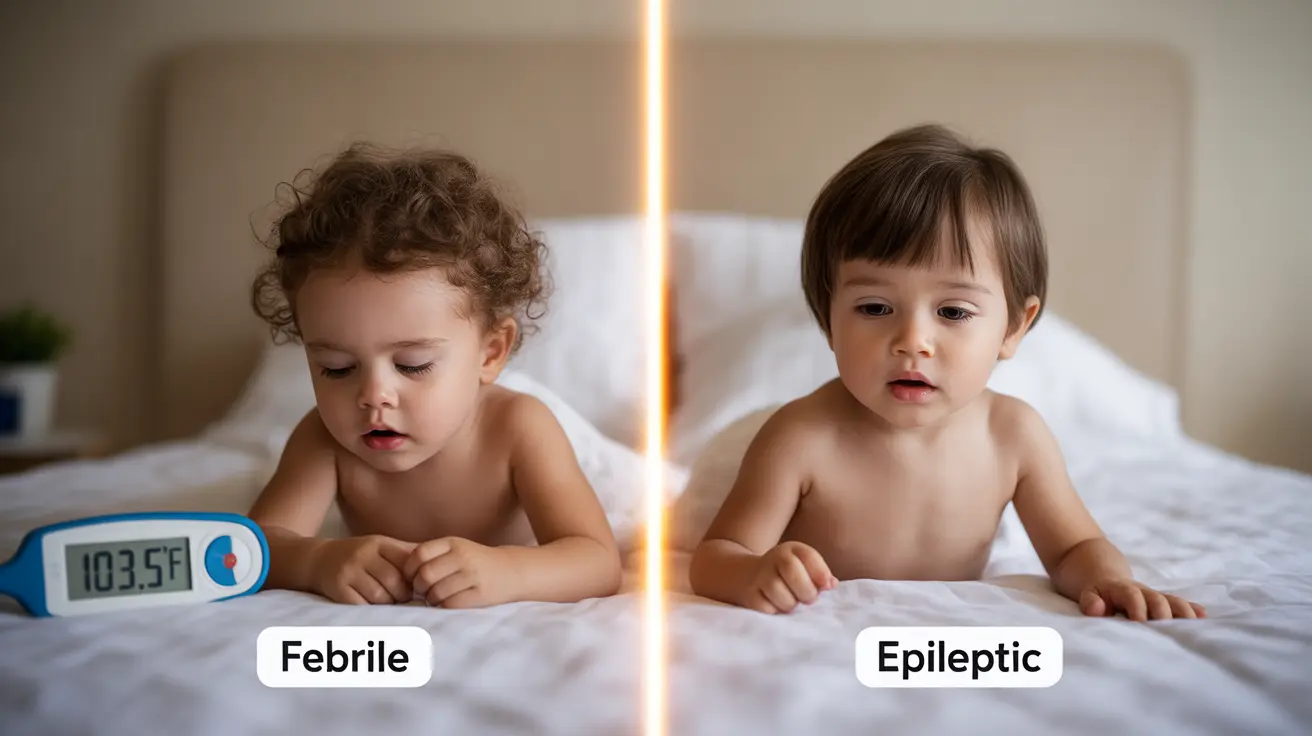When a child experiences a seizure, it can be a frightening experience for parents. Understanding the distinction between febrile seizures and epilepsy is crucial for proper diagnosis, treatment, and peace of mind. While both conditions involve seizures, they have different causes, characteristics, and long-term implications.
This comprehensive guide will explore the fundamental differences between febrile seizures and epilepsy in children, helping parents and caregivers better understand these conditions and know when to seek medical attention.
Understanding Febrile Seizures
Febrile seizures are convulsions that occur in young children, typically between 6 months and 5 years of age, triggered by a rapid rise in body temperature or fever. These seizures, while alarming, are generally benign and self-limiting.
Types of Febrile Seizures
There are two main types of febrile seizures:
- Simple febrile seizures: Last less than 15 minutes and don't recur within 24 hours
- Complex febrile seizures: Last longer than 15 minutes, occur multiple times within 24 hours, or affect only one side of the body
Understanding Epilepsy
Epilepsy is a chronic neurological disorder characterized by recurrent, unprovoked seizures. Unlike febrile seizures, epileptic seizures are not triggered by fever and can occur at any age.
Characteristics of Epileptic Seizures
Epileptic seizures may present in various ways:
- Generalized seizures affecting the entire brain
- Focal seizures affecting one part of the brain
- Absence seizures characterized by brief lapses in awareness
- Tonic-clonic seizures involving muscle stiffening and jerking
Key Distinctions in Diagnosis and Treatment
The approach to diagnosing and treating febrile seizures differs significantly from epilepsy. While febrile seizures typically require minimal intervention beyond fever management, epilepsy often needs long-term medical treatment and monitoring.
Diagnostic Procedures
Healthcare providers may recommend different tests based on the type of seizure:
- Temperature monitoring and medical history for febrile seizures
- EEG, MRI, or CT scans for suspected epilepsy
- Blood tests to rule out other conditions
Risk Factors and Prevention
Understanding risk factors can help in prevention and management:
- Family history of febrile seizures or epilepsy
- Age and developmental factors
- Previous neurological conditions
- Fever management strategies
Long-term Outlook
The prognosis for children with febrile seizures is generally excellent, with most outgrowing them by age 5. Epilepsy, being a chronic condition, typically requires ongoing management and medical supervision.
Frequently Asked Questions
What are the main differences between febrile seizures and epilepsy in children? Febrile seizures are temporary seizures triggered by fever in young children, while epilepsy involves recurring, unprovoked seizures due to abnormal brain activity. Febrile seizures typically occur only during fevers and are outgrown, whereas epilepsy is a chronic condition requiring long-term management.
Can febrile seizures cause epilepsy or increase the risk of developing it later in life? While febrile seizures don't directly cause epilepsy, children who experience complex febrile seizures may have a slightly increased risk of developing epilepsy later. However, this risk is still relatively low, and most children who have febrile seizures do not develop epilepsy.
What symptoms should I look for to tell if my child is having a febrile seizure or an epileptic seizure? Febrile seizures occur during or shortly after a fever and typically involve whole-body convulsions. Epileptic seizures occur without fever and can present in various ways, including partial seizures, absence seizures, or convulsions. The presence of fever and age of onset are key distinguishing factors.
How are febrile seizures diagnosed and when is further testing like EEG or MRI needed? Febrile seizures are typically diagnosed based on symptoms, medical history, and the presence of fever. Additional testing like EEG or MRI is usually only necessary for complex febrile seizures, multiple episodes, or when epilepsy is suspected.
What is the typical prognosis and management for a child after experiencing febrile seizures? The prognosis for children with febrile seizures is excellent. Most children outgrow them with no long-term effects. Management typically focuses on fever control and safety measures during seizures. Regular medical follow-up may be recommended, but long-term medication is rarely necessary.




